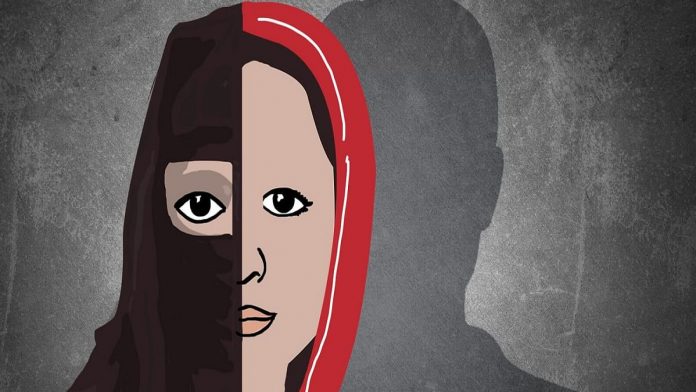This article is written by Ronika Tater from the University of Petroleum and Energy Studies, School of Law. In this article, she explains the origin of love jihad and recent laws on the conversion of marriage. It also discusses whether the present state’s law aligns with the constitutional provisions or not with the support of case laws and relevant provisions.
Table of Contents
Introduction
India is a multi-linguistic country with the origin of diverse religions of the world. In 1950, the Indian Constitution through 42nd Amendment Act, 1976 declared India as a secular state which means that everyone in the country has a right to practice his or her religion peacefully. Part III of the Indian Constitution guarantees various fundamental rights. Under which Article 25 to Article 28 provides for the freedom of religion. The Indian Constitution states that it is the choice of the adult couple to freely convert themselves into another religion but the laws established by several states are against the principle of the Constitution.
Marriage and religion under the Constitution
Indian jurisprudence on religion has evolved what constitutes an essential religious practice. The two relevant constitutional provisions which provide the provision of the right to freedom of religion are below-mentioned:
- Article 25 states that every person is equally entitled to freedom of conscience and the right to freely profess, practise, and propagate religion. However, restricted to public order, morality, and health. Nevertheless, it shall not affect the operation of any existing law or prevent the State from making any laws based on regulating or restricting any economic, financial, political, or any other secular activity with regard to religious practices.
- Article 26 states that every religious denomination or any section of it to establish and maintain institutions for charitable and religious purposes, to manage its affairs, to own and acquire moveable and immovable property, and to administer such property as per the law. Subject to restrictions to public order, morality and health.
For several years there has been a conflict between freedom of religion and one’s right to equality under Article 14 of the Constitution. Both of these rights are guaranteed to every citizen of the country. The fact that women need to choose between one or the other is an unfair choice and against the principles of their constitutional right. Moreover, the secular laws such as the Special Marriage Act, 1954 (hereinafter ‘SMA’) which provides codified and religion-neutral laws for those who want a secular marriage, also suffers from lacunae and does not guarantee justice. According to a 2018 Law Commission of India paper, interfaith couples are often left with no choice but to convert in order to avoid delay and procedural problems. The SMA requires the interfaith couple or couples intending to marry to provide a 30-days notice before which is then publicly posted. This provides an orderly delay in marriage and is violative of human rights.
Further, Article 16 of the Universal Declaration of Human Rights, to which India is a signatory, provides men and women of majority the right to marry without any limitation to race, nationality or religion. It recognizes inter-faith marriages as a part of human rights.
Case laws
The Indian Courts in various judicial precedents have held that the right to choose a partner of a person’s choice is a fundamental right thereby, stating that this right shall not be affected by the difference in faith and religion. In the case of Ratilal Panachand Gandhi v. the State of Bombay, (1954), the Court held that every person has a fundamental right under Article 25 of the Constitution of India to follow such religious belief as per their conscience or judgment and also to exhibit his belief, ideas and thoughts in such overt acts as sanctioned by his religion and to impart his religious views for the betterment of others in society. Similarly in the case of Rev. Stanislature v. the State of M.P, & Ors., (1977), the right to propagate religion under Article 25 does not include the right to convert by fraud, deceit, or allurement and thereby upholding the constitutional validity of the earliest anti-conversion statutes enacted by Madhya Pradesh Dharma Swatantraya Adhiniyam, 1968 (now amended) and Orissa Freedom of Religion Act, 1967 (now amended) prohibiting conversion by force, fraud, deceit, or allurement. Neither of these Supreme Court deaths with the question of freedom of choice in the relation of religion and marriage.
In Lata Singh v. State of U.P & Anr. (2006), the Supreme Court held that there is a need for protecting the parties to bitter-caste and inter-religious marriages. It also stated that in a democratic country, once a person attains major he or she can marry whoever they like. In Asha Ranjan v. the State of Bihar & Ors, (2017), the Supreme Court held that the right to choose a life partner is a legitimate constitutional right. It is recognized under Article 19 of the Constitution which is not a reasonable restriction to the concept of class honour or group thinking. In the instant case, it was also held that class honour has no legitimacy even if it is practised by a group of people with some kind of a notion. Consequently, in the case of Shakti Vahini v. Union of India, (2018), the Supreme Court held that a person’s right to marry without the limitation of religion is part and parcel of their fundamental rights recognized under Article 21 of the Constitution.
In the recent case of Shafin Jahan v. Ashokan KM, (2018), (also known as the ‘Hadiya case’) the Supreme Court after observing the facts and circumstances of the case stated that the claim raised by the father of Hadiya is baseless. Hadiya is an adult and the Constitution provides her with the freedom to convert to another religion and marry the person of her choice freely. The Constitution grants an individual absolute autonomy over the choice to marry. The Court mentioned that the conversion for marriage was not under any influence, coercion or fraud. Since the marriage was valid as per the Muslim law and to exercise the jurisdiction to declare the marriage null and void is ultra vires of the judicial power.
Origin of love jihad
‘Love Jihad’ is a theory propagated by right-wing groups under which they say that Muslim men ‘forcibly convert’ women to other religions under the appearance of love, it is also known as forceful conversion. The origin of love jihad traces back to the 1920s, during the era of shuddhi which was a purification movement to reclaim Hindus who had converted to other religions. This movement was launched by Arya Samaj. The objective of this movement was to build a campaign against the conversion of Hindu women by Muslim men. The issue of love jihad is not a new phenomenon. But the current war on love jihad was originated in 2009 when the BJP-led Karnataka government initiated an investigation into Muslim men on the basis of claims that the Muslim men were wooing Hindu and Christian girls for conversion. After the investigation, it was found out that the allegations put forward by the BJP-led Karnataka were based on substantial data to prove the case of love jihad.
What are love jihad ordinances?
The Preamble of the Constitution of India provides that the citizens of India are secured from the following:
- Justice includes social, economic and political justice.
- Liberty of thought, ideas, expression, belief, faith and worship.
- Equality before the law and of opportunity among all.
- Fraternity states secure the dignity of the individual and the unity and integrity of the nation are protected.
This last promise, that is, of “fraternity”, means brother or brotherhood which is necessary for a harmonic coexistence of people of all kinds. In recent times, it has been noticed that several ordinances, laws and rules passed across the state legislature are against the idea of fraternity, secularism and fail to recognise the intrinsic value of the individual to freely choose their religion and adopt another religion.
For instance, the Uttar Pradesh Prohibition of Unlawful Conversion of Religion Ordinance, 2020 was the establishment by the state legislature to combat the threat of “love jihad” by some of the political leadership to describe interfaith relationships and marriages. The ordinance provides for the prohibition of unlawful conversion from one religion to another by coercion, misrepresentation, fraud, undue influence, force and allurement for marriage thereby making it a criminal offence. The provisions for punishment are the most problematic. The punishment for imprisonment may extend to a term of five years, and if the victim is a minor, woman or a member of a Scheduled Caste or Tribe, the punishment for imprisonment extends to ten years. Section 2(a) of the ordinances provides that if conversion is for an allurement or an inducement then the conversion is not valid. Thus UP ‘love-jihad’ law provides threat and harassment of Muslimes thereby, violative of Article 14 (right to equality), Article 15 (non-discrimination), Article 19, Article 21, Article 25, Article 26 and equality of status to minorities.

The objective of anti-conversion laws
The primary objective of anti-conversion laws introduced by various state legislatures in the guise of freedom of religion is the prevention of forceful conversion. However, there is no central legislation stressing the issue of conversion for marriage, the only restriction is on the grounds of public order, health, morality, and public peace. It also violates the right to life and liberty guaranteed under Article 21 as it thrives on and apprehended certain people that such ordinances, laws, and policies will invite criminal sanctions. For instance, Section 6 of the Uttarakhand Freedom of Religion Act, 2018, Section 5 of the Himachal Pradesh Freedom of Religion Act, 2019, Gujarat Freedom of Religion (Amendment) Act, 2021, and the Madhya Pradesh Freedom to Religion Ordinance, 2020, states an anti-conversion law that outlawed religious conversion based on marriage and declares it to be null and void. Moreover, these stringent laws make the conversion for marriage unlawful for the sole purpose of adopting a new religion.
Further, on the issue of whether love jihad laws are constitutional or not, the Gujarat Chapter of the Jamiat Ulema-e-Hindi filed a petition before the Division Bench of Gujarat High Court stating that some of the amended provisions under the Gujarat Freedom of Religion (Amendment) Act, 2021 are unconstitutional. The Gujarat High Court passed an interim order staying at Section 3, 4, 4A to 4C, 5, 6 and 6A of the Gujarat Freedom of Religion (Amendment) Act. The Court stated that the marriage performed by a person of one religion to another religion without force, allurement, fraudulent ways does not come under the ambit of marriages for the purpose of unlawful conversion. Thus these anti-conversion laws go against the democratic value of the Constitution. It is capable of great public mischief and acts as a hurdle for interreligious marriages and relationships.
Misuse of the anti-conversion laws
In Lily Thomas, Etc. v. Union of India, (2000), the Supreme Court held that conversion for marriage for the sole purpose to get rid of the first wife. In the instant case, an already married Hindu man converted to Islam solely for entering into bigamous marriage was in question before the Court. The Court stated that on such an occasion the previous marriage will automatically dissolve and the second marriage would be void.
In the case of Shahan Sha A. & Another v. State of Kerala, (2009), the High Court of Kerala while dismissing a bail application under Section 438 of the Code of Criminal Procedure (Cr.P.C) focused on the importance of Article 25 of the Constitution. The High Court also stated that our law does not prohibit inter-religious or inter-caste marriages. Inter-religious marriages arising out of love affairs are promoted and recognized in today’s time. While solemnizing such marriages, one party doesn’t need to convert into another party’s religion. But, in the case where one party believes that a marital union cannot be performed without the other party converting to his or her religion i.e., his or her faith. However, in such cases, love is not prominent but religion is paramount. Forcible, misappropriate, compulsive or deceitful conversions take place in such cases. It destroys the sanctity and divine love. The Government is bound to protect the fundamental rights of the citizen under Article 25 but it does not promote indulging in activities for compulsive religious conversion. It is rightfully said that the freedom of one should not entitle him to hold the freedom of another.
The present reality about love jihad
All the allegations stating love jihad that Muslim men are waging jihad through such marriages have been proven wrong and there is no evidence, for instance in Hadiya’s case. According to the reported 2011 census data, 79.80% of the population of India is Hindu, 14.23% Muslim, 2.30% Christian, 1.72 % Sikh, 0.70% Buddhist, and 0.37% Jain. Thus, practically the recent anti-conversion laws are aimed at the smallest percentage. These anti-conversion laws run contrary to the spirit of interfaith and inter-caste harmony which is one of the basic principles in the Constitution. Thus, only the judiciary can take note of this matter.
In a recent case, Priyanshi @ Km. Shamren & Ors. v. State of U.P. & Anr, (2020), the division bench of the Allahabad High Court overruled an earlier decision by a single judge of the Allahabad court which declared that conversion to Islam was valid only when it was based on a change of heart. However, in the instance case, the Court stated that marriage is a matter of choice, and every adult woman has the fundamental right to choose her partner. The case also emphasises that in the matter of marriage and choice of religion, the state can not intervene. The conspiracy theories such as ‘love jihad’ are based on fake news and propagate hatred and suspicion among the religious communities. Such anti-conversion laws only instil fear among Muslims and contribute to deepening communal fault thereby making it tougher for interfaith couples to exercise their right. Every individual has the right to choice in friendship, love, marriage, and the right to practice a religion of one’s faith is an inalienable right.
Indian courts have repeatedly reaffirmed the constitutional right to choose a life partner regardless of religion is a fundamental right of conserving adults and it is intrinsic to the Right to Life, Privacy and Personal Liberty. Recently, the Supreme Court on 01.06.2021 went ahead to examine the constitutional validity of anti-conversion laws established by Uttar Pradesh and Uttarakhand. After receiving various arguments based on the provision of the laws being oppressive. It also stated that the requirement to obtain prior consent before marrying someone from a different faith was to create division in society. It also raises questions on the grant of ultra vires to the police. In Divyaben W/O Sameer Abdulbhai Queshi D/O Vijaybhai Jethabhai Rohit v. State of Gujarat, (2021), a division bench of the Gujarat High Court passed an interim order to protect the parties of inter-faith marriage from being unnecessarily harassed. In the instant case, the petitioner approached the High Court to quash an FIR which was brought forward by the police relating to certain religiopolitical groups thereby, highlighting the issue of the love-jihad angle.
Conclusion
Jacob F. Roecker said that “the greatest threat to our Constitution is our ignorance of it”. The anti-conversion laws established in several states highlight specific aspects of the acts that violate the secular principles of this nation. It is hard to believe that such ordinances/laws could be passed by the state government in a country that is governed by rule of law and the Constitution. Although the judiciary has no power to interfere in the legislative function such as in matters of conversion of marriage unless the question of the constitutional validity of law is raised. The recent Allahabad High Court’s and Gujarat High Court’s decisions are encouraged by the various segments of society and encourage women and men to choose their partner and marry outside their religion freely. But there is still a need to look into the constitutional validity of recent ordinances and state laws as they violate the right to religion which tries to end all interfaith marriages. Hence, the judiciary must uphold the democratic values and morals of the Constitution.
References
- https://blog.ipleaders.in/conversion-marriage-not-place-exercising-judicial-power-light-palash-sarkar-v-state-west-bengal-ors/amp/.
- https://thewire.in/law/love-jihad-ordinance-communal-rhetoric-divisive-justice-ap-shah
- https://www.news18.com/news/india/sc-agrees-to-examine-constitutionality-of-love-jihad-laws-issues-notices-to-up-uttarakhand-himachal-3252236.html.
- https://thewire.in/communalism/allahabad-high-court-conversion-marriage-love-jihad.
- https://www.livelaw.in/pdf_upload/pdf_upload-383854.pdf.
- https://scroll.in/article/999696/harsh-mander-the-love-jihad-bogey-in-kashmir-is-another-attempt-to-deny-women-freedom-of-choice.
- https://www.google.com/url?q=https://www.livelaw.in/news-updates/marital-dispute-love-jihad-angle-religio-political-groups-wife-husband-gujarat-high-court-quash-fir-181276&sa=D&source=editors&ust=1633253782471000&usg=AOvVaw0M5kRqNc7V3ObgYvrhKHy_.
- https://www.livelaw.in/amp/top-stories/love-jihad-supreme-court-notice-up-uttarakhand-laws-religious-conversion-marriage-168007.
LawSikho has created a telegram group for exchanging legal knowledge, referrals and various opportunities. You can click on this link and join:
https://t.me/joinchat/J_0YrBa4IBSHdpuTfQO_sA
Follow us on Instagram and subscribe to our YouTube channel for more amazing legal content.
 Serato DJ Crack 2025Serato DJ PRO Crack
Serato DJ Crack 2025Serato DJ PRO Crack










 Allow notifications
Allow notifications


